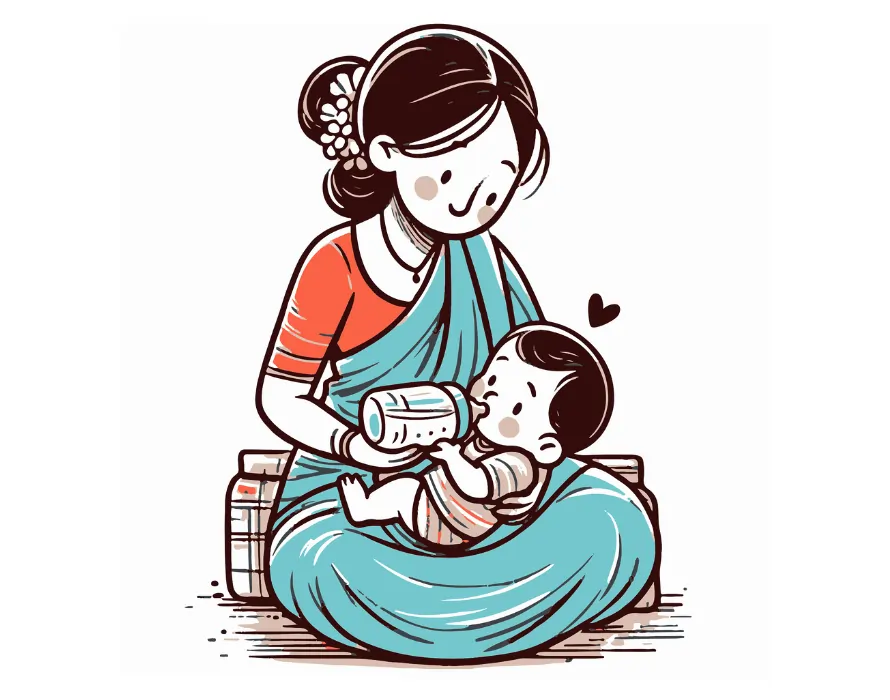Motherhood is a multifaceted journey, combining biological instincts, emotional responses, and learned behaviors. Whether it comes ‘naturally’ or is something that must be learned is a question that has intrigued society for generations. Some aspects of motherhood appear instinctual, tied to biology, while other parts are shaped through experience, learning, and adaptation.
This article will explore the concept of motherhood from both angles—those traits that may come naturally and those that are undoubtedly learned—while also touching on the psychological, cultural, and individual factors that shape the maternal experience.
Biological Instincts in Motherhood
For many, motherhood appears to come naturally due to biological and evolutionary instincts. Women experience hormonal changes during pregnancy and childbirth, which often enhance emotional bonding with their child. Oxytocin, sometimes called the “love hormone,” is released during labor and breastfeeding, promoting nurturing behavior and forming a natural basis for maternal connection. This leads many to believe that motherhood is inherently ‘natural’.
Evolutionarily, humans, like many mammals, have developed instincts to care for and protect their offspring to ensure survival. The reflex to respond to a baby’s cry, for example, can be seen as an instinctual drive that most women and mothers seem to possess, often without formal training.
a. The Role of Hormones
Hormonal shifts during pregnancy and postpartum periods contribute to maternal instincts. Oxytocin plays a crucial role in fostering attachment and protection, making a new mother feel deeply connected to her baby. These biological changes suggest that some aspects of motherhood are innate and automatic, driving a woman to care for her child.
b. Neuroscientific Support
Studies in neuroscience have shown that the brain undergoes significant changes during pregnancy and motherhood. These changes enhance sensitivity to a baby’s needs, further reinforcing the idea that some maternal behaviors are biologically ingrained. Brain scans reveal that the parts of the brain associated with empathy, emotion regulation, and social understanding often grow more active in new mothers, reflecting an instinctual shift towards caring for their newborns.
Motherhood as a Learned Skill
While biology plays an undeniable role, not every aspect of motherhood comes effortlessly. Many aspects of mothering are learned through experience, observation, and cultural conditioning. Just as any skill can be developed over time, the complexities of raising a child often require learning, practice, and adaptation.
a. Parenting Techniques
Parenting involves numerous learned behaviors. From swaddling a newborn to understanding developmental milestones, many skills are acquired through instruction, research, and trial-and-error. While a mother may have the instinct to protect and comfort her child, knowing how to implement effective disciplinary methods or foster emotional resilience in a child is something learned, not inherently known.
b. Cultural Influence on Parenting
Cultural norms and traditions strongly influence what society expects from mothers, and women learn much of their mothering style from their environment. For instance, how a mother chooses to feed, comfort, educate, or socialize her child can vary widely across cultures and is often learned through family traditions or societal expectations.
Some women might feel overwhelmed by the sheer amount of information about ‘correct’ parenting, especially in an age where advice and guidelines flood social media and books. This reflects the learning curve many face in the early stages of motherhood.
Challenges of Motherhood: The Emotional and Mental Aspects
Another dimension of motherhood involves emotional and mental development, which can be a learned process. Not every woman feels an immediate or natural connection to her baby, and feelings of uncertainty, fear, and self-doubt can arise. Postpartum depression, anxiety, and the immense pressures of parenting are experiences that many mothers must navigate through support, therapy, or shared learning.
a. Postpartum Challenges
A significant number of new mothers face postpartum depression or anxiety, which can make the early stages of motherhood feel anything but ‘natural’. These experiences highlight the importance of learning emotional resilience and seeking support, further suggesting that parts of motherhood are cultivated over time rather than inherently present from the beginning.
b. Support Systems and Learning through Community
Motherhood is often enriched by community. From parenting groups to family elders, many women rely on the collective wisdom of others to guide them through motherhood. The “it takes a village” concept underscores how important social learning and support are to the motherhood journey.
Individual Differences: Not All Women Experience Motherhood the Same Way
It’s essential to recognize that not every woman experiences motherhood in the same way. For some, the maternal instinct may feel strong and immediate, while for others, it might take time to develop. Various factors, including upbringing, personality, life experiences, and even the temperament of the child, can influence how natural or learned motherhood feels to a woman.
a. Different Temperaments
Some women are naturally nurturing and may find that they slip easily into the role of motherhood, while others might struggle to balance caregiving with their own needs and identities. The child’s temperament can also affect this dynamic—some babies are more challenging, leading to feelings of inadequacy or frustration in their mothers, which necessitates patience and learning.
b. Adoptive and Non-Biological Mothers
Adoptive mothers and non-biological caregivers provide an important perspective on this topic. These women often do not experience the hormonal and biological shifts associated with pregnancy but can still develop profound, nurturing relationships with their children through learned skills and emotional bonds. This suggests that while some aspects of motherhood may be biological, the emotional and practical sides of parenting can be learned, regardless of biological connection.
Balancing Nature and Nurture in Motherhood
Ultimately, motherhood appears to be a blend of natural instincts and learned skills. The biological aspects of caregiving are complemented by acquired knowledge and experience. While many women may feel a ‘natural’ inclination towards nurturing, the reality of parenting involves continuous learning and personal growth.
Motherhood isn’t a fixed identity, but rather a fluid process that changes with time, experience, and the development of both the mother and the child.


